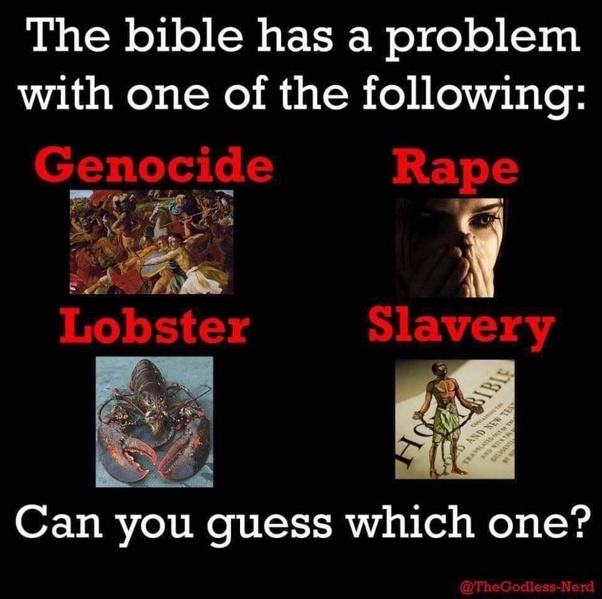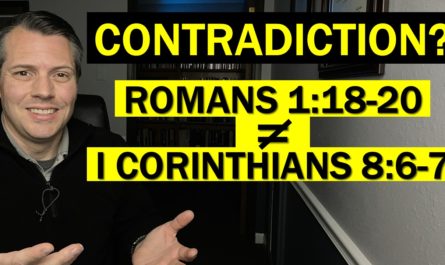Is it possible for a loving God to exist, but still have evil in the world? Or, to put it another way, does evil disprove God?
At first, the question may stop us in our tracks. After all, if God is loving, it makes sense that He would want to eradicate evil, pain and suffering. If He is all-powerful, He would be able to eradicate it. Therefore, the existence of evil, pain, and suffering must indicate that God either doesn’t exist or He is either not loving or not powerful.
The answer to this apparent paradox is not as elusive as it may seem at first glance. However, before we attempt an explanation, we need to understand that there are two kinds of evil: moral evil and natural evil.
Moral evil is evil that comes as a direct result of man’s wickedness. We might think of things such as the Holocaust, 911, mass shootings, and domestic violence.
Natural evil, on the other hand, affects us because we live in the world. We experience earthquakes, tsunamis, cancer, heart attacks, and cavities. Natural evil does not come as a direct result of anyone’s actions. It just happens.
So, how do we solve the God and evil paradox?
First, we will deal with the question of how God can exist along with evil. If we think about it, we can conclude that not only can God exist along with evil, but if there is evil, there must be a God. Without God, we would have no basis to call anything evil.
If there was no God, we could call nothing evil
Without God, we would have no absolute standard, so the concept of good and evil would be meaningless.
For example, most people would agree that torturing a child for the fun of it is evil, while sacrificing yourself for another person is good. But what determines that one course of action is good and one is evil? If there is no God, everything is a result of random chance, so there would be no standard of good and evil. We would have no basis to say that anything is evil (or good, for that matter). The very fact that we know that evil exists is proof that there is an ultimate standard of right and wrong, which is God. In his book Mere Christianity, C.S. Lewis famously stated that “A man does not call a line crooked unless he has some idea of a straight line.” We need a perfect standard before we can recognize a deviation from it.
Some, however, counter this argument with an assertion such as “Good is what benefits humanity.” But that argument will eventually collapse because we each have different ideas about what benefits humanity. Besides, what makes it “good” for humanity to be benefited? If life is nothing more than a lucky freak accident of nature, so what if it were destroyed in another freak accident?
The existence of evil, then, does not disprove the existence of God. But that still leaves us with the question…why would He allow it? One answer is that, because of His love, He gives us freedom, and true freedom necessarily allows for the possibility of evil choices.
A loving God gives us freedom (which allows for evil)
Would you want to live in a world where you could not make choices? We have a word for that—it’s called prison.
If you truly love someone, you don’t kidnap them and force them to live with you against their will. Rather, you give them freedom to choose to do what makes them happy. True love offers a choice.
God could have created us as pre-programmed robots, but in His love, He gave us free will.
Remember the Lego Movie? Initially, it seemed as though “everything is awesome” in Bricksburg, where all of society worked in perfect harmony. However, as the story progressed, the “awesome” life began to unravel as it was shown to be fabricated by “President Business,” whose singular goal was to control every aspect of the Lego world. Under compulsion, the perfection of “everything is awesome” proved fraudulent as the plasticized figures attempted to break free from their cosmic micromanager.
Apparently, even minifigures understand that we wouldn’t want to live in a world devoid of the freedom to make choices.
True freedom allows for the possibility of both good choices and evil choices. If we are free to choose good, then we are also free to choose evil. If we were to remove the possibility of moral evil from the earth, we would also have to remove love and charity. Would we want to live in that kind of a world?
There is another reason that God allows evil to exist—it reveals His glory.
Evil reveals the glory of God
If there was no possibility for moral evil, we would know nothing of God’s justice or His grace and mercy.
God offers us grace for a reason:
…that in the ages to come He might show the exceeding riches of His grace in His kindness toward us in Christ Jesus. (Ephesians 2:7)
God gave us the freedom to choose, knowing that we would choose to do wrong. However, our morally evil choices result in God’s manifesting of His grace and mercy upon His undeserving creation.
God sometimes does stop evil (but we don’t like it)
When we say that God doesn’t do anything about evil, we suppose that we know everything that God does. Is it possible that He has stopped much evil that we don’t know about?
Sometimes, however, when He does something about evil, we don’t like it. For example, many skeptics complain about the violence in the Old Testament. How could God command the wholesale slaughter of the Canaanites? The answer was that the Canaanites were wicked (Deuteronomy 9:4) and deserved it. God does something about evil, and we complain about it. We can’t have it both ways.
Also, consider the book of Revelation. God will ultimately do something about evil. He will destroy this earth and make a new heaven and earth.
To bring it a little closer to home, ask yourself this question: What if God removed evil by starting with me? I’m not sure I want that.
So far, we’ve been looking at answers to the question of moral evil. But what about natural evil—those things that “just happen” because we live on the earth?
Although natural evil is not a direct result of a person’s sin, it is ultimately a result of Adam and Eve’s sin, made possible by free will.
Natural evil is a result of free will
When God made everything, it was very good. Included in that good, however, was free will—it was good because we could willingly choose to glorify God by doing right. But when Adam and Eve sinned, God cursed the ground. Now we have earthquakes, tsunamis, cancer, heart attacks, and cavities. Oh, yes–and death.
But that’s not really going to help you when a tornado destroys your house, your grandchild drowns, or your mom gets cancer. How could God allow these tragedies, especially for people who are trying to do right?
One answer is that God may be allowing suffering in your life to make you stronger.
Suffering makes us stronger
James, in his letter to persecuted Jews, encouraged them with these words:
My brethren, count it all joy when you fall into various trials, knowing that the testing of your faith produces patience. (James 1:2-3)
Testing of faith comes only through difficulty. If we lived in a world devoid of suffering, we would never grow and mature. It just might be that God is more interested in our character than our comfort. We become stronger through suffering, and when we learn to respond to suffering with the right attitude, it brings glory to our Maker. Which, by the way, is the purpose we exist. So, suffering helps us fulfill our purpose for living.
Finally, we need to understand that we have limited vision. We can’t see the whole picture like God can.
We can’t see the big picture
We are finite beings who tend to be nearsighted, seeing only the problems that slap us in the face, sending us into a tailspin. But the apostle Paul brings our vision back into focus:
For our light affliction, which is but for a moment, is working for us a far more exceeding and eternal weight of glory, while we do not look at the things which are seen, but at the things which are not seen. For the things which are seen are temporary, but the things which are not seen are eternal. (2 Corinthians 4:17-18)
When we suffer for something, we appreciate it much more. Everyone will enjoy Heaven, but how much sweeter it will be for people who have suffered at the hand of evil—especially the martyrs.
“But,” you may say, “that’s way off in the future! Does evil and suffering help now?”
Yes, it does, but we can’t always see it because we are living in the middle of an incomplete story. If you stopped an action movie at the height of the climax, you may think that the hero loses. However, if you allowed it to play to the end, you would watch the unfolding of an unexpected series of events, culminating in the vindication of the protagonist.
God is working out a plan through all the events of our lives, even if we can’t see it. A devastating forest fire causes great suffering for both animals and humans, but it ultimately provides for an improved habitat by clearing out life-inhibiting underbrush. Only God knows how our suffering will contribute to His overall plan.
You may have struggles in life that cause you to question if God exists, and if He does, if He loves you. I hope you have been able to see that we experience evil and suffering partly because He does exist and because He loves us.
I love this quote that has been attributed to Jacques Marie Louis Monsabre:
“If God would concede me His omnipotence for twenty-four hours, you would see how many changes I would make in this world. But if you gave me His wisdom too, I would leave things as they are.”



